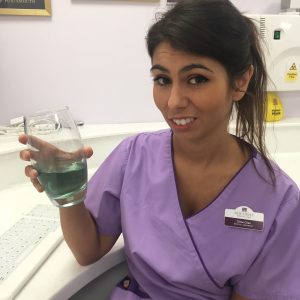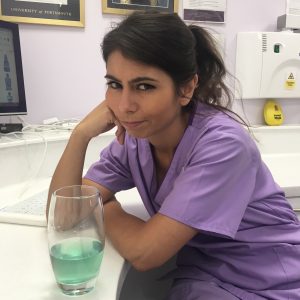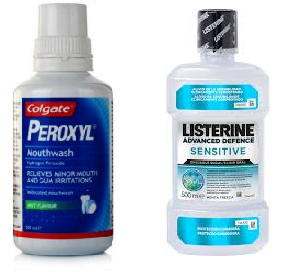Mouthwash – Does it Really do Anything?

The countless aisles of mouthwash at the shops and all those very convincing adverts on telly make us believe that we need to use mouthwash daily if we want healthy teeth and gums. But is this true or just a very clever marketing ploy?
Plaque that collects on our teeth and gums causes problems and needs to be physically cleaned away using a toothbrush. An electric brushes remove much more than a manual and floss or interdental brushes remove it from in-between. Plaque cannot just be washed away using chemicals or liquids. It’s a bit like cleaning the dishes, just chucking water and some soap on the dish won’t clean it properly, you must get the sponge and physically scrub the dish to get it clean.
Using a mouthwash after brushing your teeth can also stop your toothpaste from preventing tooth decay. We know that the fluoride in toothpaste is proven to help reduce your risk of tooth decay, but it takes 20-30 minutes to absorb into your teeth. Therefore, after brushing, you should spit the toothpaste out but don’t rinse with anything after for at least 20 minutes. If you use mouthwash after, you end up washing away all the good fluoride along with all its benefits.

However, there are some exceptions:
- Ulcers: you can help to treat ulcers or sores in your mouth with a mouthwash called Peroxyl which uses oxygen. This helps to kill bacteria, hence why it will fizz in your mouth. For a more natural approach, traditional hot salt water will stimulate your blood to help with healing and the salt is a natural antibacterial. Use one tablespoon of ordinary table salt dissolved in boiled water mixed with a little cold and use twice a day until the symptoms ease. Try not to swallow as it will make you sick.
- Sensitivity: tooth sensitivity can usually be soothed with sensitive toothpastes. But, if it is particularly sensitive then you can try Listerine ‘Advanced Sensitive’ mouthwash at a different time to brushing

If you still really want to use a mouthwash, just remember:
- Use at a different time to brushing, e.g. after eating lunch
- Ensure it is alcohol free as alcohol has been linked with oral cancer so stay clear of these
- Make sure you understand that mouthwash can freshen your breath, but it cannot cure gum disease or prevent it alone. This is because it only washes the teeth rather than effectively cleaning them (despite what the terrifying advert with people’s teeth falling out tries to scare you into)
- There is a small amount of fluoride in some mouthwashes (250ppm) but not as much as in toothpaste (1450ppm). If you use it straight after brushing you will wash away the higher concentration with the lower one.
If you have any other questions or queries, please to not hesitate to call New Street Dental Care on 01264301301 or email us at info@newstreetdentalcare.co.uk for some friendly advice.

